Does Coffee Damage Teeth?
While coffee may not directly damage your teeth, it can pose challenges to your dental health, primarily through staining and acidity.
You see, the tannins in coffee lead to discoloration, clinging to your enamel and gradually turning your teeth yellow or brown over time. Additionally, the acidity in coffee can wear down your tooth enamel, making your teeth more vulnerable to decay, sensitivity, and cavities.
These effects, however, don't mean you have to give up your morning cup of joe. By understanding how coffee interacts with your teeth and how it can be bad for your oral health, you can take steps to mitigate its impact while still enjoying coffee.
To keep your smile bright and healthy, consider moderating your coffee intake and always rinse your mouth with water after drinking coffee. This simple habit helps neutralize the acids and wash away tannins, reducing their staining and erosive effects.
For those iced coffee days, using a straw can minimize direct contact with your teeth, further protecting your enamel. Above all, the most important thing is to maintain diligent oral hygiene by brushing twice a day with remineralizing toothpaste and using expandable dental floss.
In this article, I'll explain everything you need to know about whether coffee damages teeth and how to prevent staining.
First, is coffee bad for your teeth?
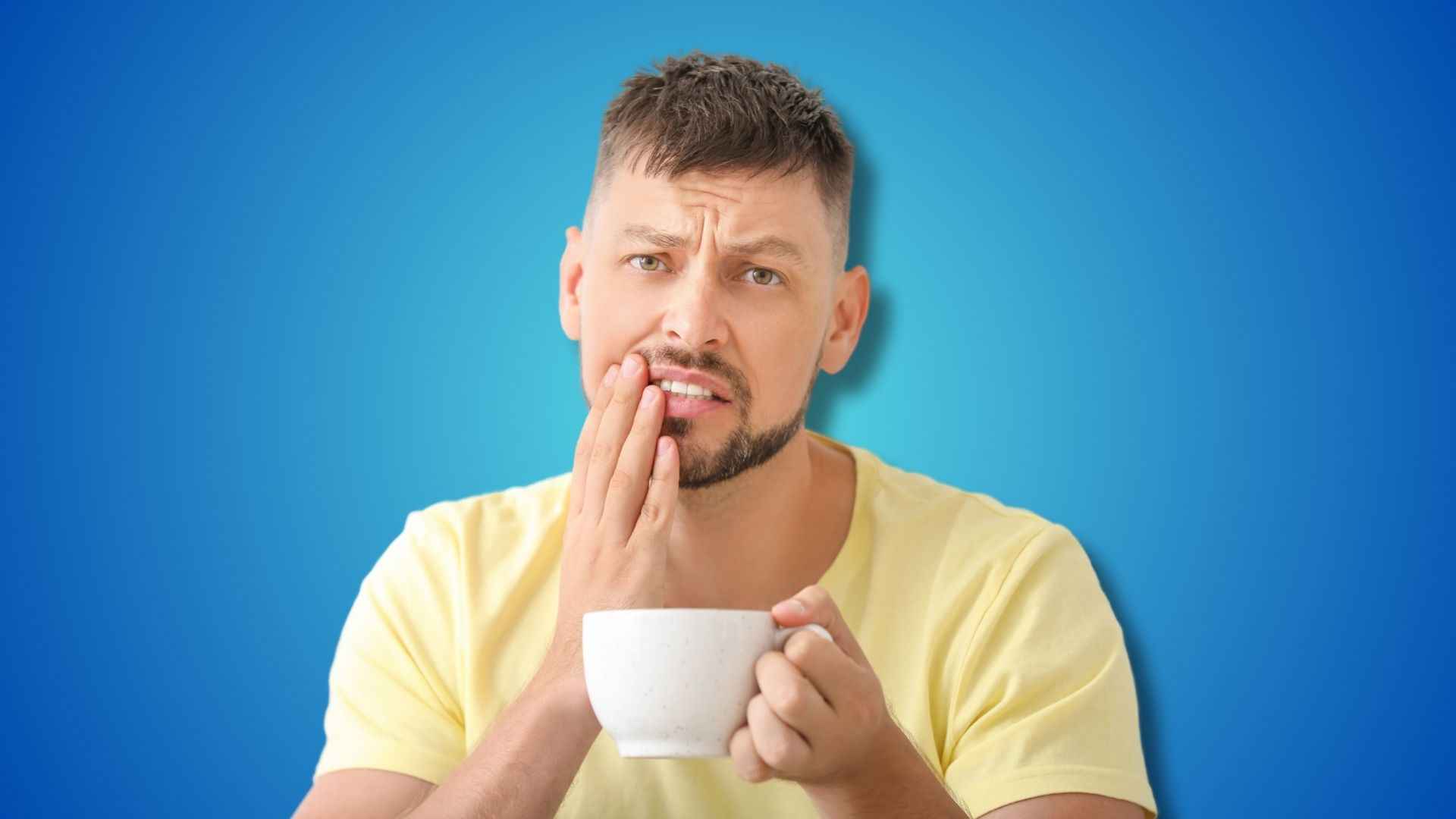
While not exactly bad for your teeth, coffee does have some drawbacks when it comes to dental health. The primary concern is staining.
You see, coffee beverages contain tannins, which are compounds that cause color pigments to more readily stick to your teeth. Over time, this can lead to noticeable yellowing or browning of the enamel.
Additionally, coffee's acidity can contribute to the erosion of tooth enamel. This erosion makes our teeth more susceptible to decay and can increase sensitivity, as the protective outer layer of the teeth wears down.
However, it's not all negative. Consuming coffee in moderation and practicing good oral hygiene can mitigate many of these effects. Some studies even show coffee can have positive effects in individuals with gum disease.
For example, rinsing your mouth with water after drinking coffee, using a straw for iced coffee to minimize contact with your teeth, and maintaining a regular brushing and flossing routine can help prevent staining and protect your enamel.
So, while your morning cup of coffee can pose some risks to your dental health, you don't have to stop drinking coffee. In fact, with the right care, you can still enjoy your favorite brew without significant harm to your teeth.
How does coffee consumption affect our oral health?
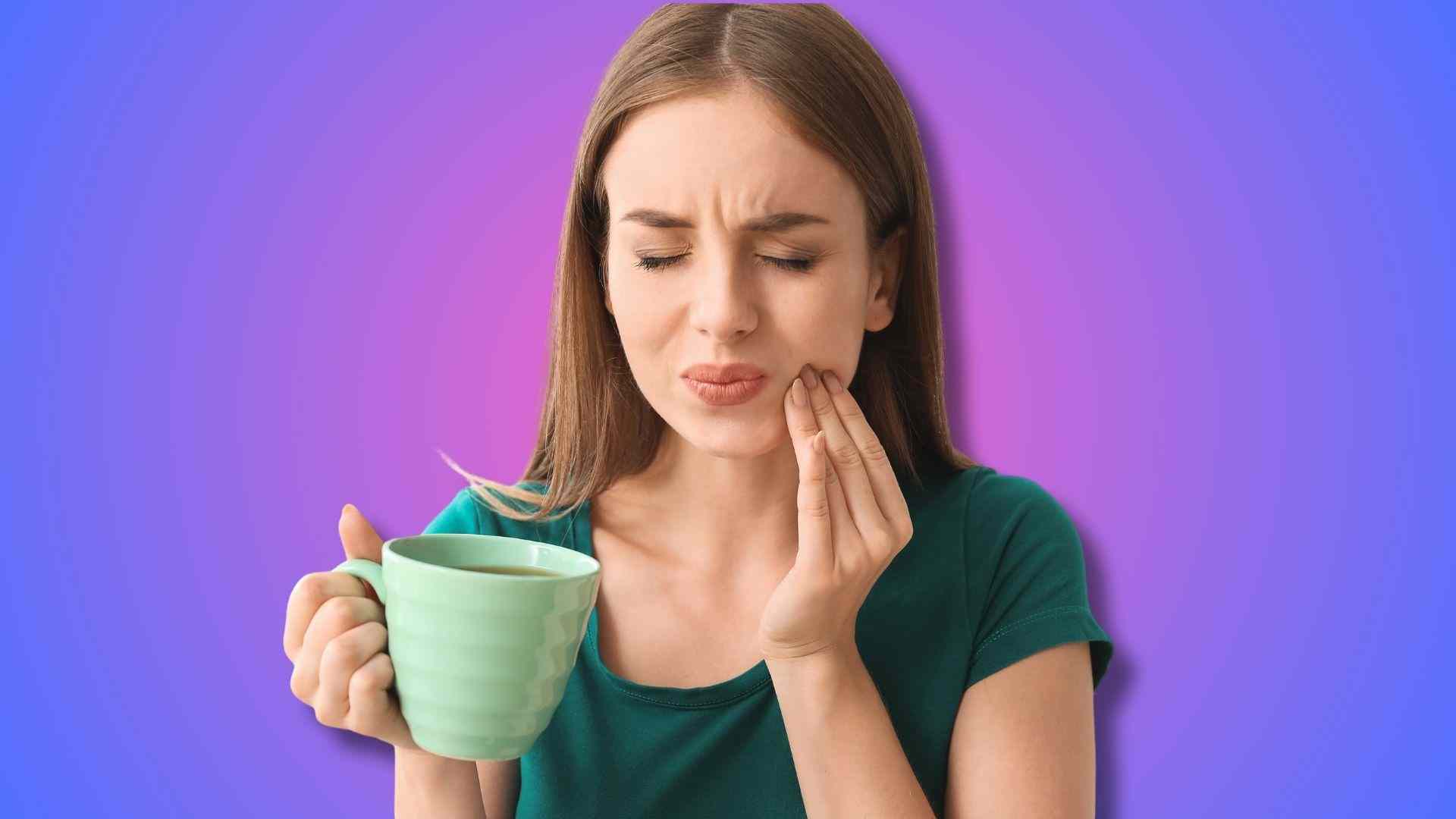
Coffee can impact your oral health in several ways. On one hand, it's known for causing teeth staining due to the tannins it contains. These compounds make color pigments stick to your teeth more readily, leading to yellowing or browning over time.
Additionally, coffee's acidity can wear down your tooth enamel, making your teeth more prone to decay and sensitivity. This is because the acid softens the surface of your teeth, allowing for easier erosion.
Also, caffeine in coffee can reduce saliva production, leaving your mouth drier and more susceptible to decay since saliva plays a crucial role in neutralizing acids and washing away food particles.
However, it's not all doom and gloom when it comes to coffee and oral health. Coffee also boasts antibacterial properties and is rich in antioxidants, which can offer some protection against oral pathogens and gum disease.
To enjoy your coffee without compromising your dental health, consider rinsing your mouth with water after your coffee break to minimize staining and neutralize acidity. Also, you should practice moderation in your coffee consumption and maintain diligent oral hygiene, including regular brushing with nano hydroxyapatite toothpaste and flossing.
By following these steps, you can continue to savor your coffee while keeping your smile bright and healthy.
Why does drinking coffee stain your teeth?
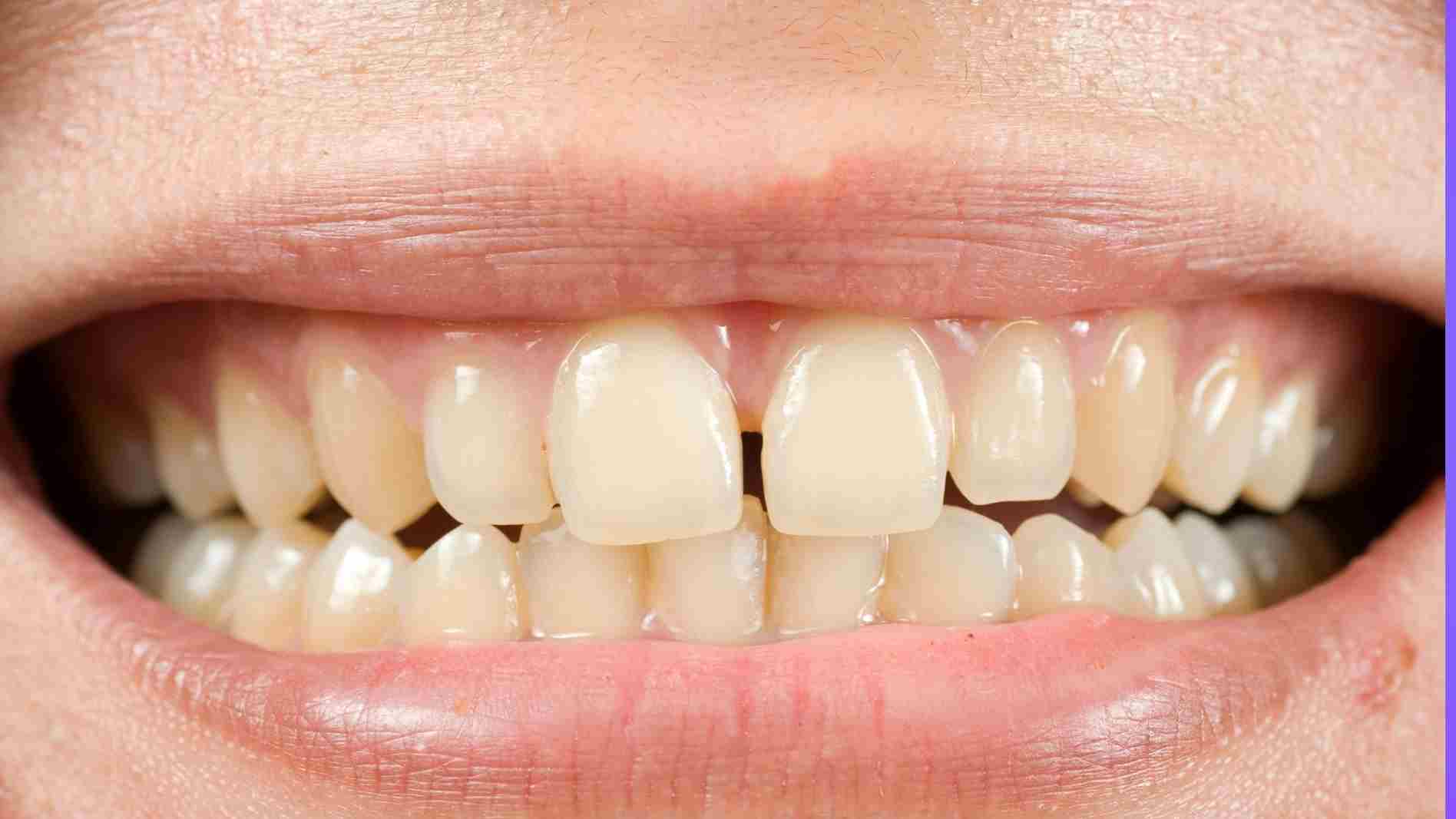
Drinking coffee stains your teeth because it contains tannins, which are organic compounds that cause color compounds to stick to your teeth.
When you drink coffee, these tannins adhere to the dental enamel, the hard, outer layer of your teeth, leading to the yellow or brown discoloration often seen in frequent coffee drinkers. The porous nature of enamel allows these pigments to penetrate deeply, making the stains more persistent over time.
Additionally, coffee's acidity contributes to the staining process and can also cause tooth sensitivity. The acid in coffee can etch the surface of your teeth, creating tiny microscopic pits and grooves where tannins and pigments can more easily accumulate.
This not only makes your teeth more prone to staining but can also exacerbate the wear of your enamel over time.
To combat coffee stains, we recommend rinsing your mouth with water after drinking coffee, brushing your teeth regularly with a nano hydroxyapatite toothpaste that contains baking soda, and considering using whitening strips to keep your teeth shining bright.
How to Avoid Coffee Stains on Your Teeth
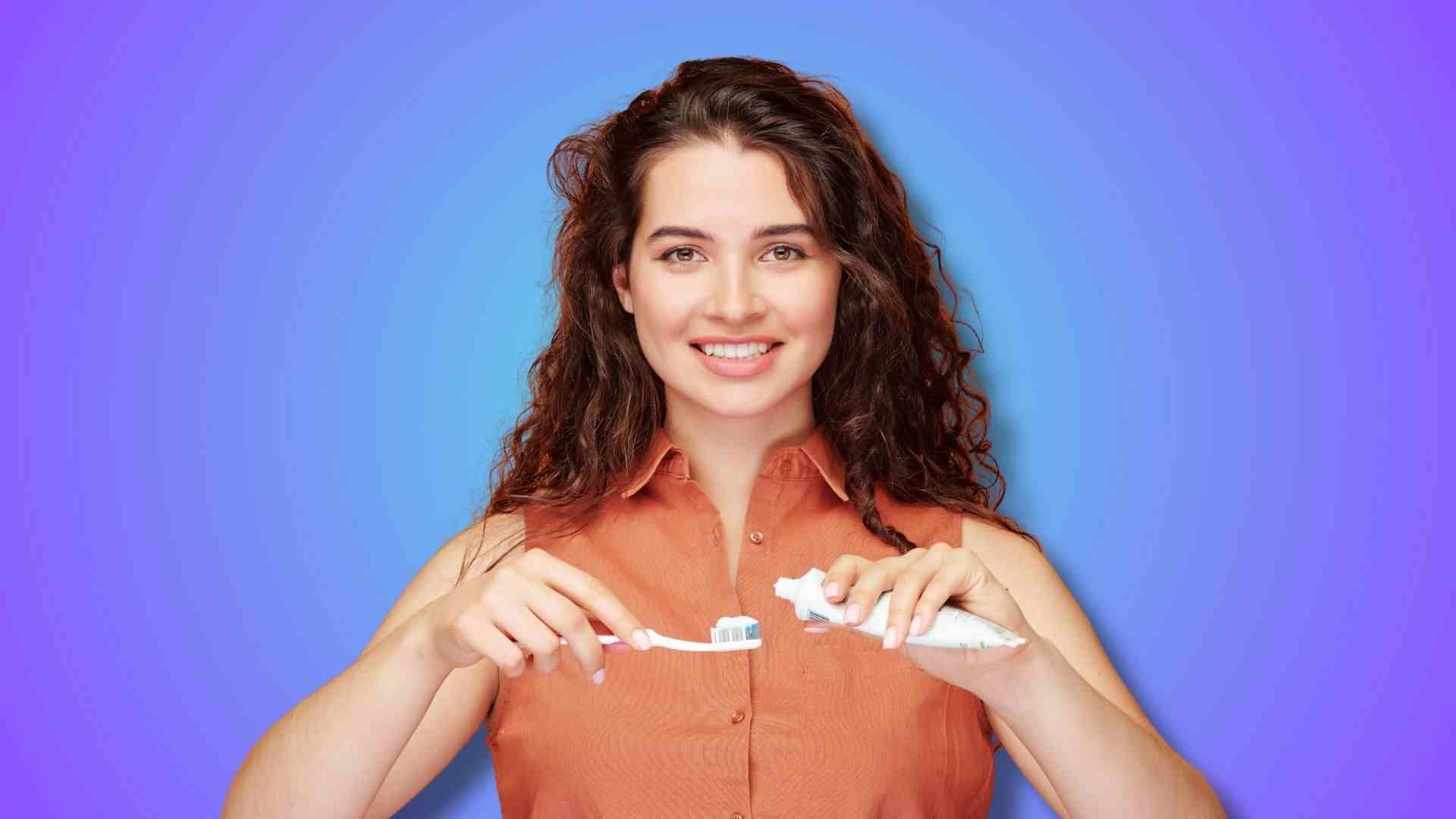
Avoiding tea and coffee stains on your teeth involves a few strategic habits that can help maintain a bright smile without having to give up your favorite beverage.
Let's walk through some of the key ways to prevent staining.
Rinse with Water
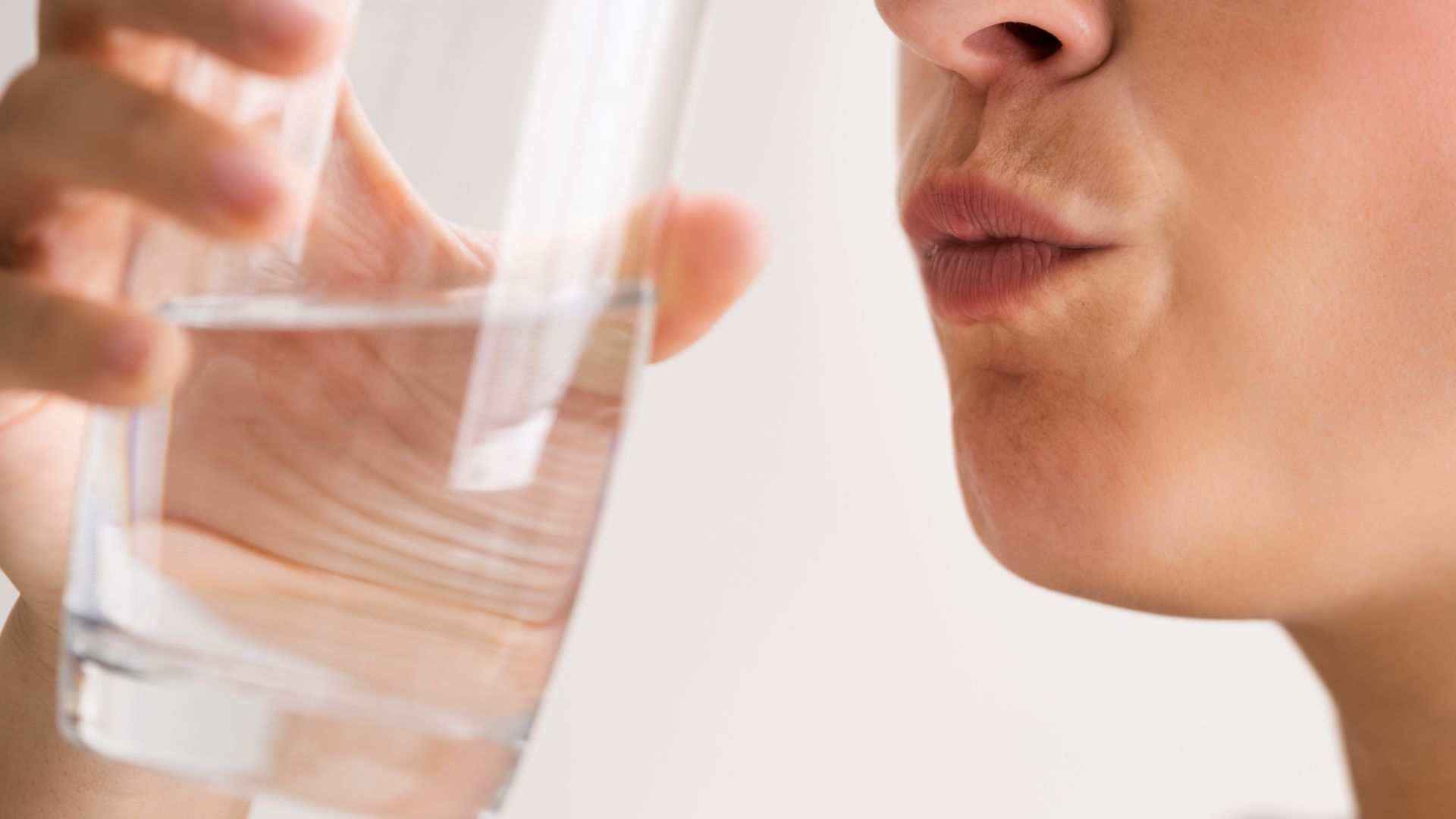
To remove coffee stains right after enjoying a cup, make sure to rinse your mouth with water. This simple step helps wash away tannins and pigments that cause staining before they have a chance to settle on your teeth.
Use a Straw

When possible, drink tea through a straw, especially if you prefer iced coffee. This method reduces the amount of liquid that comes in contact with the visible front surfaces of your teeth.
Add Milk
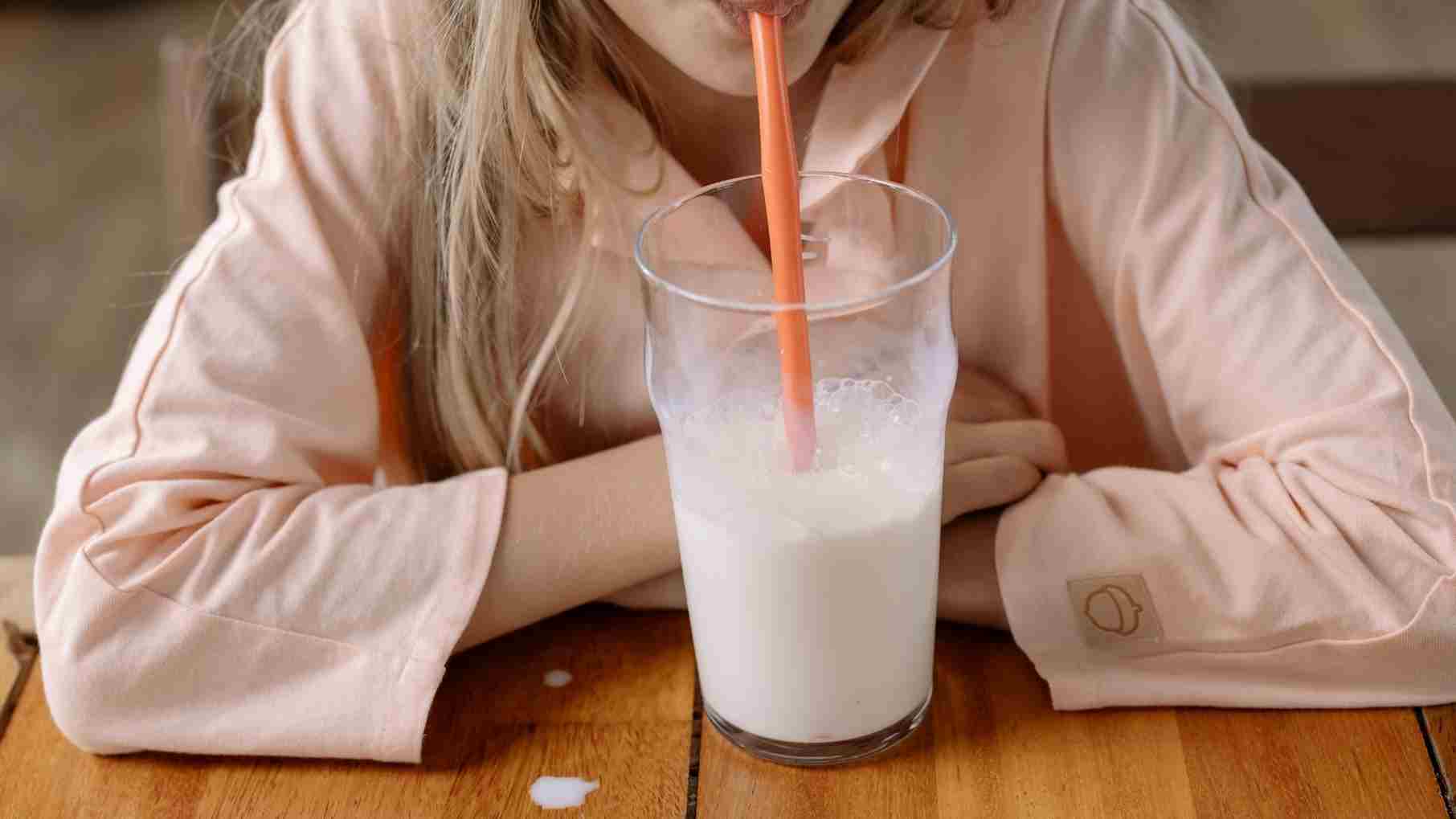
Research suggests that adding milk to your tea, and potentially coffee, may reduce its staining potential. This may be because the proteins in milk inhibit the tannins in tea and coffee, preventing stains.
Maintain Good Oral Hygiene
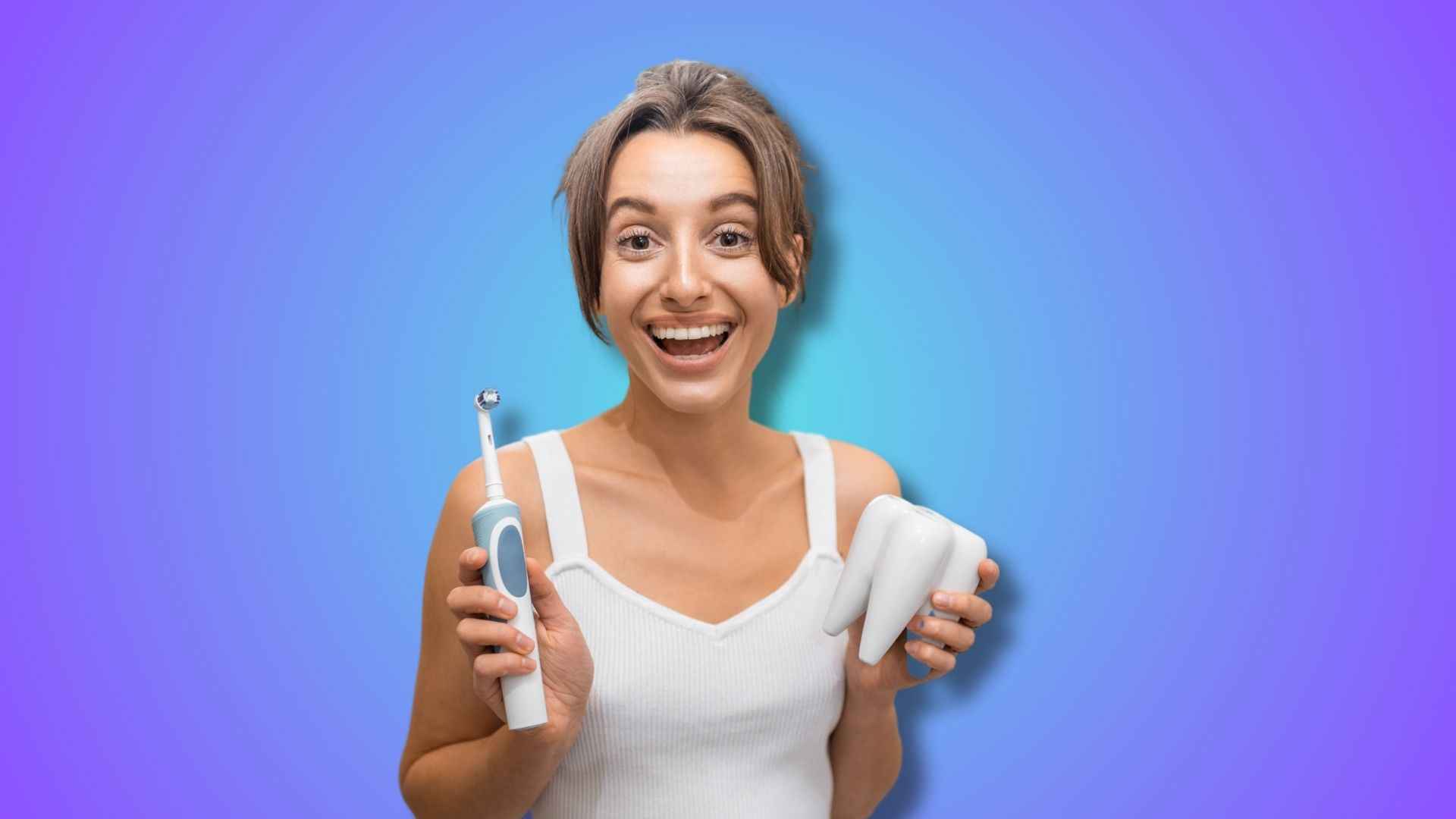
Brush your teeth at least twice a day with nano hydroxyapatite toothpaste and use expandable dental floss daily. You can also consider using a whitening toothpaste, though some dental professionals consider it bad as it can erode enamel.
Thankfully, regularly brushing with nano hydroxyapatite toothpaste helps remove surface stains and prevents them from setting in without causing damage. Plus, remineralizing toothpaste can prevent tooth decay which can also cause the appearance of tooth stains.
Professional Dental Cleanings
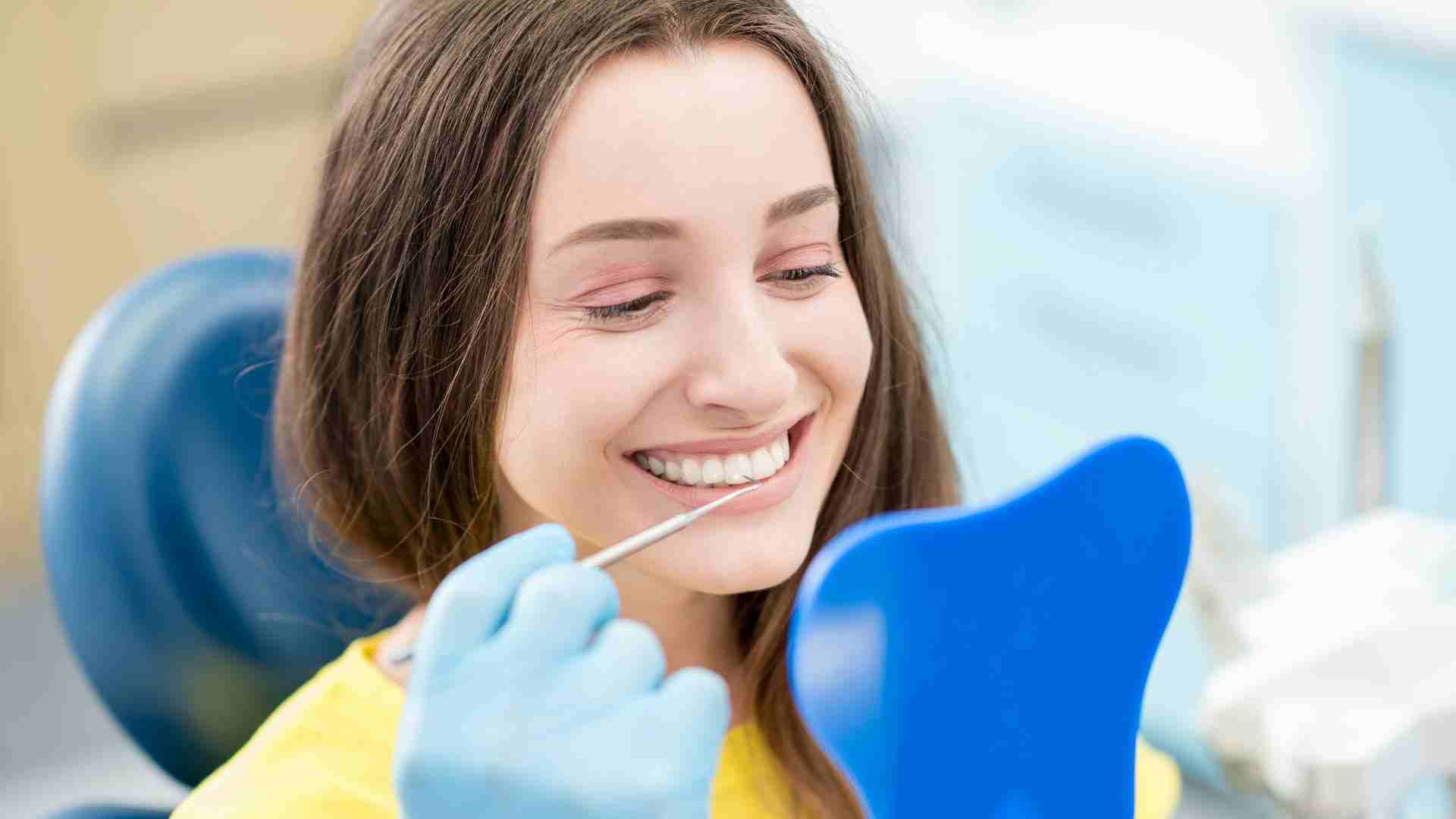
Of course, it's important to see a dentist regularly for a professional cleaning. Your dentist or hygienist can remove surface stains more effectively than at-home care and can offer advice or teeth whitening treatments to further reduce staining.
You can also consider using natural whitening strips at home as needed for a quick, effective way to remove stains from coffee.
Just remember that you wait about 48 hours to drink coffee after teeth whitening to prevent further staining.
Frequently Asked Questions
How can I drink coffee without damaging my teeth?
You can consume caffeine without damaging your teeth by opting for alternative sources such as caffeine pills or supplements, which bypass direct contact with your teeth. Another option is to choose lighter-colored beverages like green tea or herbal teas that are less likely to cause staining compared to coffee. Additionally, you can try using a straw when drinking caffeinated beverages to minimize contact with your teeth. Finally, maintaining good oral hygiene practices, such as brushing and flossing regularly, can help prevent or reduce staining caused by caffeine consumption.
Should I stop drinking coffee for my teeth?
While coffee can stain teeth over time, it's not necessary to completely stop drinking it for dental health. Moderation and proper dental hygiene, such as regular brushing and flossing, can help mitigate any potential staining. Additionally, drinking water alongside coffee can help reduce its staining effects. If you're concerned about the impact of coffee on your teeth, consulting with a dentist for personalized advice is recommended.
Does black coffee cause tooth decay?
Black coffee itself doesn't directly cause tooth decay, but certain factors associated with its consumption can contribute to dental issues. Acidic beverages like coffee can weaken tooth enamel over time, making teeth more susceptible to decay. Additionally, if you add sugar or sweeteners to your coffee, it can increase the risk of cavities. However, practicing good oral hygiene and consuming coffee in moderation can help minimize these risks.
Is tea or coffee worse for your teeth?
Tea and coffee can both have an impact on dental health, but coffee tends to be slightly worse due to its higher acidity and staining potential. However, factors like how you prepare and consume them, as well as your overall dental hygiene habits, play significant roles. Moderation, along with proper brushing and flossing, can help mitigate the potential negative effects of both beverages on your teeth.
What is the most unhealthy drink for your teeth?
Sugary drinks, particularly soda, are widely considered the most unhealthy for dental health. These beverages not only contain high levels of sugar, which can contribute to tooth decay, but they are also often acidic, which can erode tooth enamel. Regular consumption of sugary drinks without proper oral hygiene can lead to cavities, erosion, and other dental problems. Opting for water or unsweetened beverages is generally better for dental health.
What happens to your teeth if you drink coffee everyday?
Drinking coffee every day can potentially lead to tooth staining over time due to its dark pigments. Additionally, the acidity in coffee can gradually weaken tooth enamel, making teeth more susceptible to decay and sensitivity. However, maintaining good oral hygiene practices like regular brushing with nano hydroxyapatite toothpaste, flossing, and dental check-ups can help mitigate these effects. Moderation and minimizing prolonged exposure to coffee by drinking it quickly or through a straw can also help reduce its impact on dental health.
Coffee, like other acidic beverages, can contribute to enamel erosion if consumed excessively or without proper oral care. Its acidic nature can weaken tooth enamel over time, leading to increased susceptibility to decay and sensitivity. However, moderate consumption coupled with good oral hygiene practices such as brushing and rinsing can help mitigate potential damage. Additionally, using a straw to drink coffee can minimize direct contact with teeth, reducing the risk of enamel erosion.






















